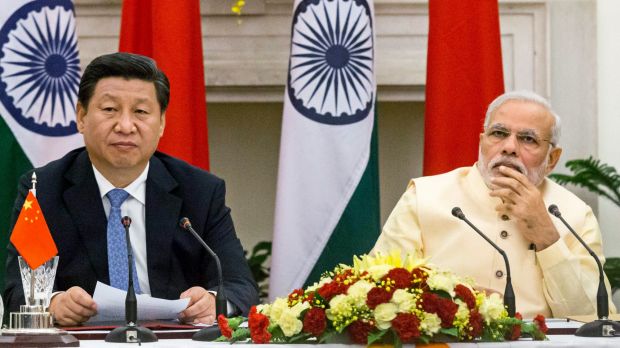"Political Gains In Name Of Counter Terrorism" Is Not On: China

NEW DELHI: Two days after China blocked India’s move for a ban on Pakistan-based terrorist Masood Azhar at the United Nations, Beijing seemingly hit out at New Delhi without naming it, for pursuing "political gains in the name of counter-terrorism.”
"There should be no double standards on counter- terrorism. Nor should one pursue own political gains in the name of counter-terrorism," said China's Vice Foreign Minister Li Baodong in a veiled reference to India at a press briefing ahead of Chinese President Xi Jinping's visit to India this week for the upcoming BRICS summit to be held in Goa between October 15-16.
The minister was answering a question on whether the issue of terrorism would come up for discussion during the BRICS summit, adding that “on counter-terrorism, the five countries have consensus. The foreign ministers of the five countries reached an agreement on the margins of the United Nation General Assembly. We hope and believe this Goa Summit will build on the pass consensus and continue to strengthen cooperation on counter-terrorism and other issues of political security.”
“Counter-terrorism, it is also important area of cooperation among BRICS on political security. Cooperation on this front will enhance BRICS coordination and contribute to world peace and security,” Li said.
The comments come just days after China blocked New Delhi’s appeal to the United Nations to label Pakistan-based Jaish-e-Mohammed chief Masood Azhar a terrorist. The JeM is a terrorist organisation per the UN, but China on Saturday extended its technical "hold" on designating the JeM chief a terrorist for a further three months.
"China always maintains that on the listing matter, the 1267 committee should stick to the main principles of objectivity, impartiality and professionalism, base its judgments on solid evidence and decide upon consensus among the members of the Security Council," Chinese foreign ministry spokesperson Geng Shuang said in a written reply to a question that was posed after the extension. Vice FM’s Li’s comments saying that China doesn’t support the pursuit "political gains in the name of counter-terrorism” therefore, is being seen in the above light by several commentators and experts.
Li also referred to China’s move to block India from entering the Nuclear Suppliers Group (NSG) earlier this year, saying that there was a need to build consensus over the admission of new members to the 48-member Group. "These rules are not to be decided by China alone. On the issue, China and India have maintained good communication and we are ready to continue consultations with India to build consensus and we also hope India can go to other members of the NSG as well," Li said.
China was instrumental in blocking India’s entry to the NSG in June this year, saying that the “…world non-proliferation regime would collapse if non-NPT countries such as India were allowed in the NSG”. India, currently, is not a signatory to the Nuclear Non-Proliferation Treaty (NPT).
“We are ready to continue consultations with India on the consensus and we also hope India can go to other members of the NSG as well. In this respect, we are also ready for discussions with India to explore the possibilities but things need to be in keeping with the procedures and norms and regulations of the NSG,” Li said when asked about whether India’s entry to the NSG will come up at the Goa BRICS summit. “On this issue, China’s position has been consistent and that is why China has often said in international occasions that international laws must be observed,” he added.



